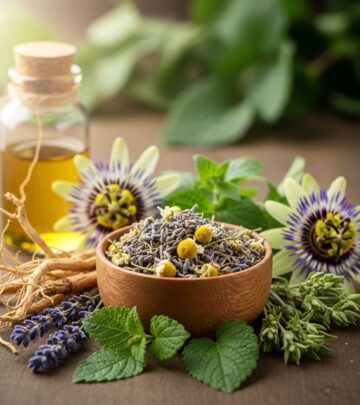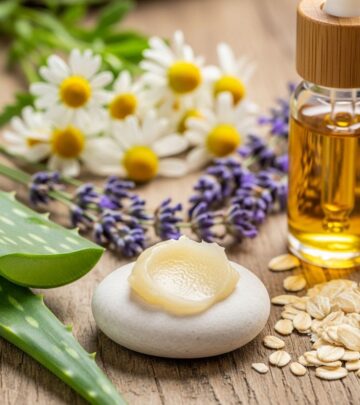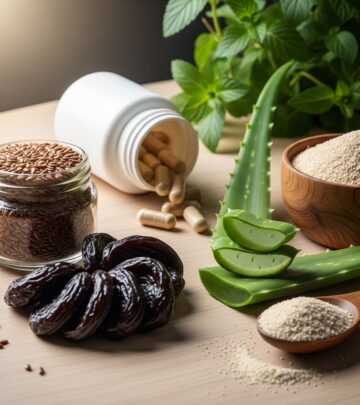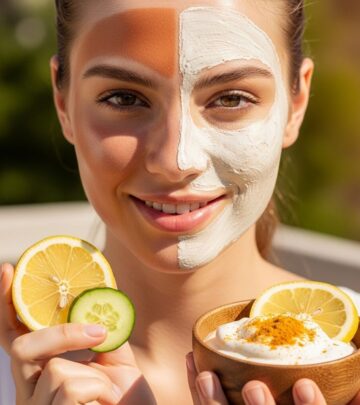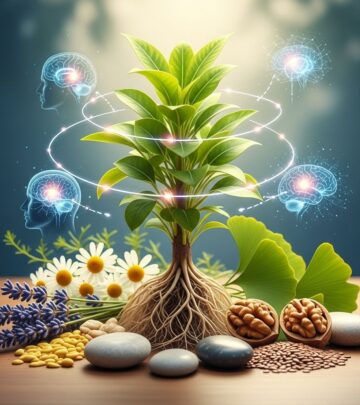10 Natural Migraine Remedies to Try Before Painkillers
Explore science-backed, drug-free migraine remedies proven to reduce pain and frequency—before you reach for prescription interventions.
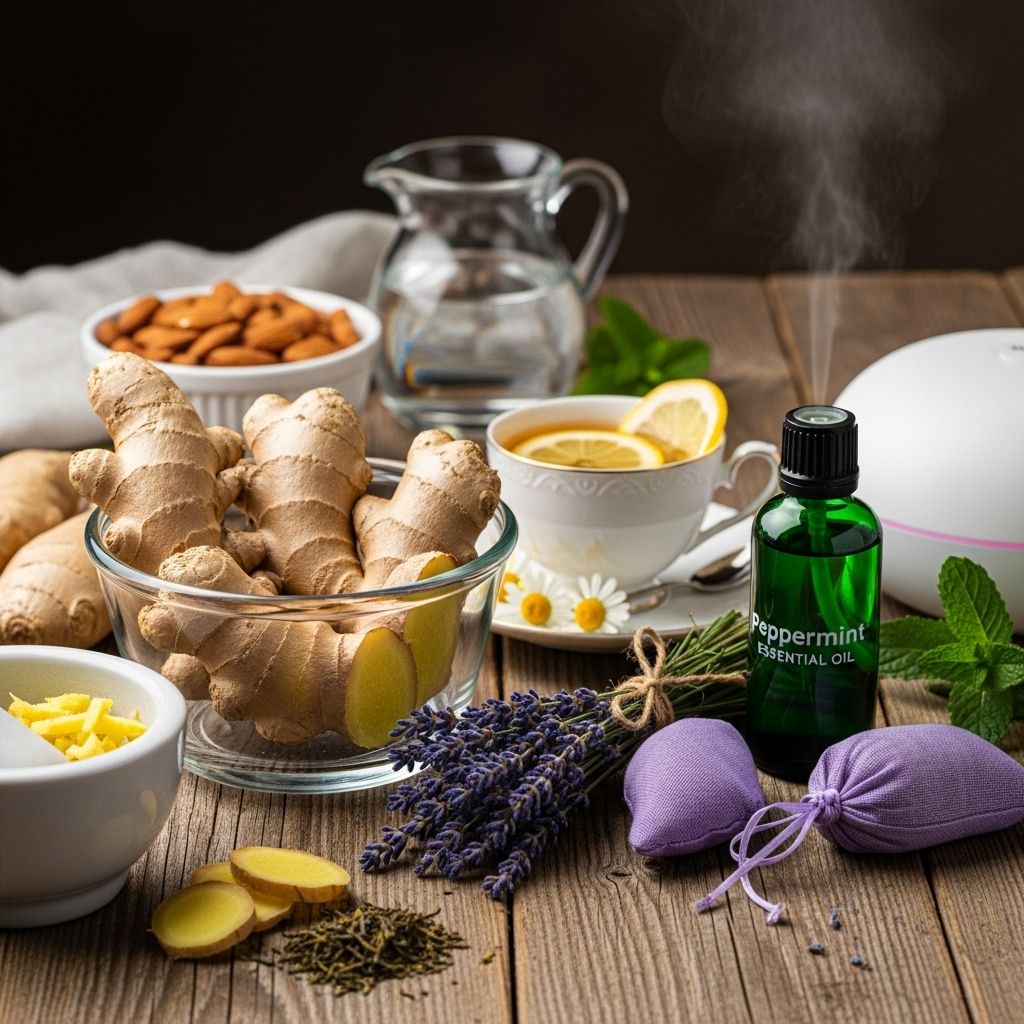
Millions worldwide suffer from migraine headaches, facing recurrent pain, nausea, and sensitivity to light and sound. While medications are sometimes essential, many seek natural migraine remedies to avoid side effects or to complement traditional therapies. Scientific evidence now supports several holistic approaches, foods, and supplements that can help reduce both the frequency and the intensity of migraines.
Below, we detail ten research-backed remedies to try, along with tips on optimizing your lifestyle for better migraine management. Consult your healthcare provider before adding any new remedy, especially if you have underlying health conditions or take prescription drugs.
1. Caffeine: Timing and Balance
Caffeine can play a dual role in migraines. For many, caffeine intake constricts blood vessels, reducing pain caused by their dilation—a known migraine trigger. It’s commonly found in coffee, tea, certain soft drinks, and chocolate. In some acute cases, caffeine is even included in prescription migraine medications due to its ability to boost the efficacy of pain relievers.
- How It Works: Caffeine narrows enlarged blood vessels around the brain, potentially reducing pain for some migraine sufferers.
- Considerations: Sensitivity varies. For some, excessive caffeine or abrupt withdrawal can cause or worsen migraines. Keeping a ‘migraine-caffeine diary’ helps identify your personal threshold.
- Expert Advice: The American Migraine Foundation recommends using caffeine for headache relief no more than twice per week to avoid rebound headaches.
2. Magnesium: The Essential Mineral
Magnesium is an essential mineral involved in nerve transmission and muscle contraction. Migraine sufferers often have lower magnesium levels compared to non-sufferers, and studies show supplementation may reduce frequency and severity, particularly for those who experience migraine with aura.
- Supplementation Insight: Dosing typically ranges from 400–600 mg daily. Choose magnesium citrate or glycinate to minimize digestive upset.
- Food Sources: Leafy greens, almonds, pumpkin seeds, black beans, and whole grains.
- Effectiveness: Regular use has shown reductions in monthly migraine frequency by up to 41% in some studies.
3. Hydration: Maintain Fluid Balance
Even mild dehydration can trigger headaches, especially in those prone to migraines. Staying well-hydrated is one of the simplest preventive strategies.
- Goal: Aim for 8–10 glasses of water daily, increasing in hot weather or with exercise.
- Tip: Eat water-rich foods like cucumbers, watermelon, and oranges to boost hydration.
- Early Sign: Thirst and dark urine can signal dehydration—drink water at the first sign of a headache.
4. Identify and Avoid Dietary Triggers
Some foods and additives are known to trigger migraines in sensitive individuals. Common culprits include aged cheeses, cured meats, artificial sweeteners, MSG, and alcohol (particularly red wine).
- Strategy: Keep a detailed food diary to correlate foods with migraine onset.
- Top Triggers:
- Aged cheese
- Smoked/cured meats
- Alcohol (esp. red wine)
- Chocolate
- Monosodium glutamate (MSG)
- Artificial sweeteners (aspartame)
- Note: Susceptibility is highly individual—elimination diets can help pinpoint triggers without unnecessary restriction.
5. Peppermint Oil: Topical Relief
Peppermint oil contains menthol, a compound that may regulate blood vessel dilation in the brain. Applying peppermint oil topically to the forehead or temples can provide noticeable relief from headache intensity.
- How to Use: Dilute a few drops in a carrier oil (like almond or coconut oil) before applying to skin to avoid irritation.
- Research: A 2019 clinical study showed a similar benefit in headache improvement when compared to lidocaine application.
- Alternate Uses: Brew peppermint leaf tea or try oil capsules (always from trusted brands).
6. Valerian Root: Stress Melter
Valerian is an herb traditionally used for sleep and relaxation, making it an excellent choice for migraines triggered by stress or anxiety. Valerian acts on nerve cells to produce a calming effect on the nervous system.
- Common Uses: Taken as a supplement (capsule, tea, or tincture format).
- Best For: Migraineurs whose attacks are linked to insomnia or emotional stress.
- Precaution: May cause drowsiness—avoid before driving or operating machinery.
7. Butterbur: Plant Power for Prevention
Butterbur (Petasites hybridus) is a plant extract with documented anti-inflammatory and anti-allergic properties. Clinical evidence shows butterbur supplementation can cut migraine frequency by nearly half in some users.
- Scientific Support: Several double-blind, placebo-controlled trials have found that 75 mg of standardized butterbur extract twice daily significantly reduces the number and duration of attacks.
- Forms: Available as capsules, powders, or tincture. Always seek PA-free butterbur to avoid liver toxicity.
- Note: Not advised for pregnant women, children, or those with liver disorders.
8. Riboflavin (Vitamin B2): Nutritional Support
Riboflavin plays a pivotal role in cellular energy production. Studies show that high-dose vitamin B2 (400 mg daily) can decrease migraine frequency and intensity, especially when combined with other control measures.
- Mechanism: Supports mitochondria, which are often less active in migraine-prone individuals.
- Effectiveness: Up to half of those supplementing with riboflavin experience a reduction in headaches.
- Sources: Dairy products, eggs, lean meats, green vegetables, fortified cereals.
9. Ginger: Nausea and Pain Relief
Ginger is well known for its anti-nausea properties—a common migraine symptom—and may also help reduce migraine pain itself.
- Clinical Findings: Ginger capsules (250–500 mg) provide relief comparable to some prescription medications, but with fewer side effects.
- Consumption: Brew fresh ginger tea, add ginger root to smoothies, or take standardized supplements.
- Additional Benefits: Anti-inflammatory, helps soothe digestive upsets associated with migraines.
10. Acupuncture & Mind-Body Methods
Alternative therapies like acupuncture, yoga, massage, and biofeedback may help reduce the frequency and intensity of migraines by lowering stress hormones, increasing relaxation, and easing muscle tension.
- Acupuncture: Studies show regular sessions may cut migraine occurrence by up to 50% for some people.
- Yoga & Stretching: Improve blood flow, promote relaxation, and mitigate physical triggers.
- Massage: Eases muscle tension and helps with stress-related migraines.
- Biofeedback: Trains you to control physiological functions like heart rate and muscle tension for long-term prevention.
Table: Summary of Top Natural Migraine Remedies
| Remedy | Primary Benefit | Best For | Precautions |
|---|---|---|---|
| Caffeine | Vessel constriction/pain relief | Occasional use/acute attacks | Excess causes rebound headaches |
| Magnesium | Reduces frequency/severity | Migraine with aura, deficiency | GI upset at high doses |
| Hydration | Prevents dehydration-induced migraines | All migraine types | Rare unless kidney issues |
| Peppermint Oil | Soothes acute pain | Tension/migraine headaches | Skin irritation if undiluted |
| Valerian | Reduces stress/triggers | Stress-induced migraines | Drowsiness, avoid mixing with sedatives |
| Butterbur | Prevents migraine | Frequent attacks | Use PA-free only; liver risk |
| Riboflavin | Cuts headache frequency | Frequent migraines | Generally safe; rare yellow urine |
| Ginger | Pain, nausea relief | Acute attacks, nausea | Rare heartburn at high doses |
| Acupuncture/Yoga | Reduces stress/frequency | All types, stress triggers | Qualified practitioner needed |
Migraine Relief: Lifestyle Tips
- Regular Sleep: Stick to a sleep schedule—go to bed and wake up at the same time daily.
- Meal Timing: Don’t skip meals; fasting or irregular eating can trigger migraines.
- Screen Management: Limit prolonged exposure to bright screens and take regular breaks.
- Stress Management: Incorporate mindfulness, meditation, or deep-breathing exercises into your routine.
- Physical Activity: Brisk walking, gentle yoga, or swimming can reduce attack frequency.
Frequently Asked Questions (FAQs)
Q: Can I use natural remedies instead of prescription migraine medication?
A: While many people benefit from natural remedies, some may still require prescription treatment for severe or frequent migraines. Always consult with your doctor before changing your treatment plan or using supplements alongside prescribed drugs.
Q: How soon will I see results from these natural treatments?
A: Some remedies, such as hydration or ginger for nausea, can work within hours. Preventive remedies like riboflavin and butterbur may take weeks for full effects. Track your symptoms in a diary for accurate assessment.
Q: Are these remedies safe for children and pregnant women?
A: Not all remedies are appropriate for children or during pregnancy. For instance, butterbur and valerian should be avoided unless prescribed. Always consult a healthcare provider to determine safety.
Q: Can I combine several natural remedies?
A: Many remedies (e.g., magnesium plus riboflavin) can be combined safely, but it’s best to add one at a time to monitor for side effects or interactions. Seek medical advice before significant changes.
Q: What lifestyle changes can best prevent migraines?
A: In addition to hydration and diet, regular exercise, structured sleep routines, and stress-reducing activities (meditation, yoga) have strong preventive effects according to research.
When to Seek Medical Help
Migraines that are frequent, disabling, or changing in nature should always prompt a consultation with a professional. Warning signs like sudden severe headache, loss of vision, weakness, or confusion require immediate medical attention. For many, combining medical and natural therapies yields the best results—always individualize your approach for optimal migraine management.
References
- https://www.brit.co/natural-migraine-remedies/
- https://www.brit.co/curable-app-for-migraines/
- https://www.healthline.com/health/natural-ways-to-reduce-migraines
- https://pmc.ncbi.nlm.nih.gov/articles/PMC8105190/
- https://www.medicalnewstoday.com/articles/322814
- https://www.ebsco.com/research-starters/complementary-and-alternative-medicine/natural-treatments-migraines
- https://www.nationalmigrainecentre.org.uk/understanding-migraine/factsheets-and-resources/natural-remedies/
- https://www.mayoclinic.org/diseases-conditions/migraine-headache/in-depth/migraines/art-20047242
- https://migrainetrust.org/live-with-migraine/healthcare/treatments/supplements/
- https://pmc.ncbi.nlm.nih.gov/articles/PMC6559232/
Read full bio of Sneha Tete


